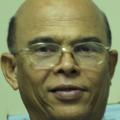Investment
in education is the most profitable development venture for the nation,
President Thein Sein said during Friday visit to University of Kalay in Chin State
which located in western Burma bordering with the Indian state of Manipur in
the north and the Indian state of Mizoram in the west. There, President Thein
Sein met rector and faculty members from Kalay University at Kabaw Hall and then,
he paid a call at Kalay District General Hospital to encourage patients within
reach, according to The New Light of
Myanmar newspaper.
"Myanmar universities are networking with prestigious
seats of education from South Korea,
Japan and so on including John Hopkins University," said the President Thein
Sein as he visited Kalay University Friday morning. He revealed the improved financial plan on education and
health in the time of his government.
Although
the country possesses abundant natural resources and situated at a strategic
position between South Asia and South-East Asia, it has been short of capital,
technology and human resources, he noticeably accepted the reality.
He
outlined the list of priorities regarding the driving force for economic development.
According to the President, the first on the agenda is to establish labor-intensive
factories and workshops in major towns as well as in townships. The second is project
of small and medium enterprises for creation of value-added commodities, he
said. The third is to put up heavy industry making use of own natural resources
and the fourth is to promote information technology upgrading, he explained.
He
called for founding of training schools to raise skilled labors to carry out aforesaid
plants. To him, responsibility of teachers is to build up human resources. He also
underlined the essential of English language proficiency to be evenly balanced
with worldwide nations.
Moreover,
he demands capable instructors who must be professional in their particular topics.
During a meeting with undergraduates there, the President urged them to turn
out to be well-educated civilized citizens.
The
words of the President pronounced during Friday visit to University of Kalay
were really good in terms of public speaking. Even though he said that investment
in education is the most cost-effective development venture for the nation, his
government similar to the previous junta has allotted insufficient amount for
the educational budget. It means President's words and realistic activities in
educational field are poles apart.
In
March 2011, National League for Democracy (NLD) led by Aung San Suu Kyi
criticized the previous 2011-2012 budget for allocating too much of its funds
to the military and not a sufficient amount to social services such as health
and education. According to the aforesaid budget allotments, 23.6 per cent of
the 2011-12 budget used for defense while just 1.3 per cent for health and 4.3
per cent for education.
According
to the NLD's 4 March 2011 statement, the unlimited "Special Funds' open to the
commander-in-chief of the military -- to safeguard national sovereignty and protect
disintegration of the union -- is totally unreasonable. The worst is
that the decree says the military commander-in-chief will not be subject to
questioning, explanation or auditing by any individual or organization
concerning the use of "Special Funds'.
Parliament,
which is formed with representatives-elect, is the best proper place to
guarantee that the budget goes with the nation's needs with the available
resources. However, Burma's recent budgetary puzzlement clearly shows that the
commander-in-chief of the military is above the president and the parliament. For
example, the defense sector used up limitless expenditure on the recent war
against Kachin Independence Army (KIA), while state schools have not enough
accommodation and qualified teachers. Similarly, while the state hospitals were
with no medicines, military bought more arms and ammunitions to expand the
civil war.
President
Thein Sein should speak cautiously in public and he must take accountability of
his words to be materialized. After saying to raise country's education
standard, first thing he ought to do is to listen the advices of the respective
professionals so as to increase the education budget reasonably. Yet, he may
have little chance to obtain reasonable funds for education since he needs to bargain
with the military spending.
Hence, political analysts and independent observers criticize the government for the amount spends on the defense budget, while key areas such as education and health are ignored. Consequently, investment in education seems to be one of the lowest in the world and that the state-sponsored educational growth may be weakened as usual due to widespread corruption which is safe under protection of military elite.





